Syria will have to destroy all its chemical weapons production facilities by November and dismantle all its poison gases and nerve agents by the middle of next year, under an accelerated timetable drawn up by the world's chemical weapons watchdog.
The governing council of the Organisation for the Prohibition of Chemical Weapons (OPCW) agreed last night in The Hague for a disarmament plan starting on Tuesday when inspectors arrive in Syria to embark on the task of checking Syria's declared stockpile of chemical munitions, delivery systems and production facilities.
"This decision sends an unmistakable message that the international community is coming together to work for peace in Syria beginning with the elimination of chemical weapons in that country," said OPCW director general Ahmet Uzumcu.
The international agreement to secure Syria's chemical arsenal follows a chemical weapons attack on rebel-held suburbs in eastern Damascus on 21 August, and the subsequent threat of US military action.
The UN said yesterday that its weapons inspectors in Damascus were investigating a total of seven sites where chemical weapons were allegedly used, including three incidents after the 21 August attack. They were in Bahhariyeh and Jobar, both east of central Damascus, on 22 and 24 August, and Ashrafiat Sahnaya to the south-west of the capital on 25 August. The UN gave no further details.
The UN security council voted unanimously on Friday for a resolution that makes the OPCW legally binding on Bashar al-Assad's regime. But under a compromise between Russia and the west clinched on Thursday, the resolution does not include automatic punitive measures against the Syrian government if it fails to comply.
Any punitive measures, from sanctions to military action, would require a second resolution. The OPCW plan, however, gives the inspectors a broad mandate. According to a draft published on the Trench website, run by Belgian chemical weapons expert Jean Pascal Zanders, Syria will have to give OPCW personnel "the immediate and unfettered right to inspect any and all sites in the Syrian Arab Republic".
The plan also sets a much faster pace for Syria compared with the requirements of the chemical weapons convention. The clock starts ticking for the government to meet its deadlines from the moment the OPCW council agrees the plan rather than the date on which Syria's membership of the convention formally starts, 14 October.
The plan states that Syria should "complete as soon as possible, and in any case not later than 1 November 2013, the destruction of chemical weapons production and mixing/filling equipment".
As the main production facilities lie in the heart of government-held territory, the destruction process is not expected to be held back by the continuing fighting. The OPCW plan then gives the Syrian government until the middle of 2014 to eliminate the rest of its arsenal. This deadline is far more challenging as the dismantling of munitions already loaded with chemical agents is a painstaking task.
The biggest question mark over the plan is what happens if Syria is caught cheating or dragging its heels. The west lost the battle to have the UN resolution implementing the plan under chapter seven of the UN charter, involving automatic punitive measures. Any such measures would require a further resolution.
But a senior US administration official argued that the wording of the draft resolution due to be voted on was tough, and implied serious consequences for noncompliance. "I think you'll see in the final language that, in fact, for the first time, we have said that the use of chemical weapons is a threat to international peace and security," the official said.
After the security council vote, the US secretary of state, John Kerry, said: "Security council shows diplomacy can be so powerful, it can defuse the worst weapons. If this resolution is implemented, we will have eliminated one of the biggest chemical weapons arsenals on earth, in one of the most volatile regions on earth."
The UN secretary general said that the resolution banning Syria's chemical weapons could not become "a licence to kill with conventional weapons". He called for a new Syria peace conference in mid-November.
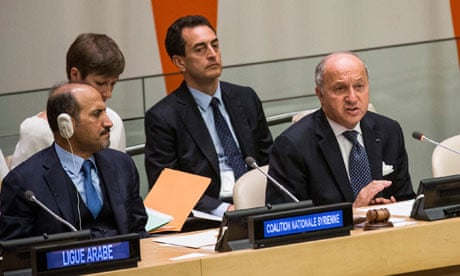
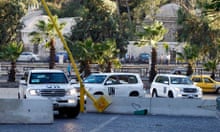
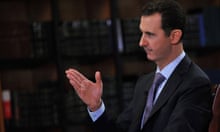
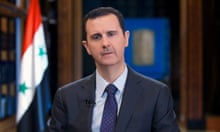
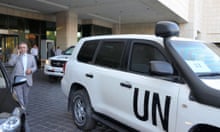
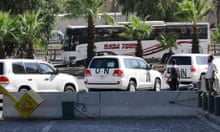
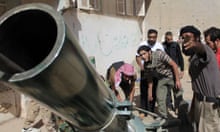
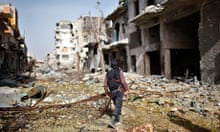
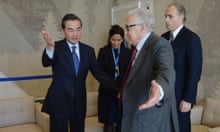
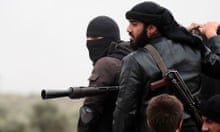
Comments (…)
Sign in or create your Guardian account to join the discussion